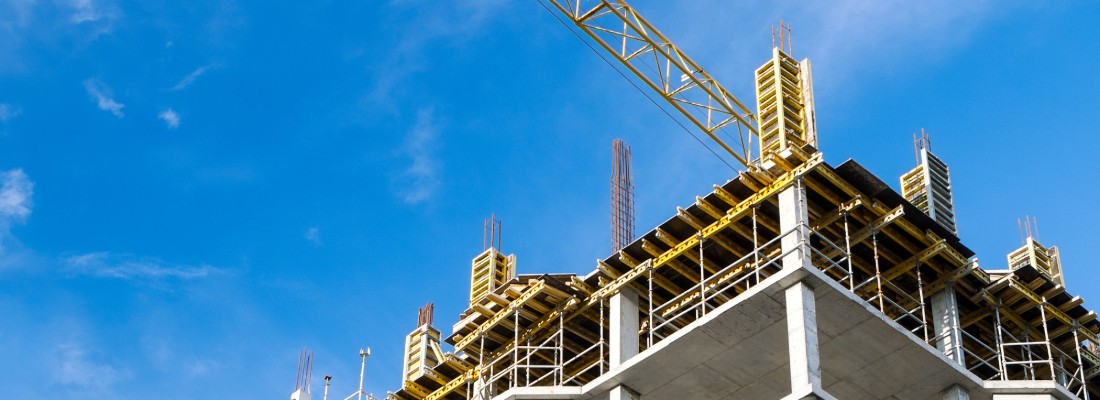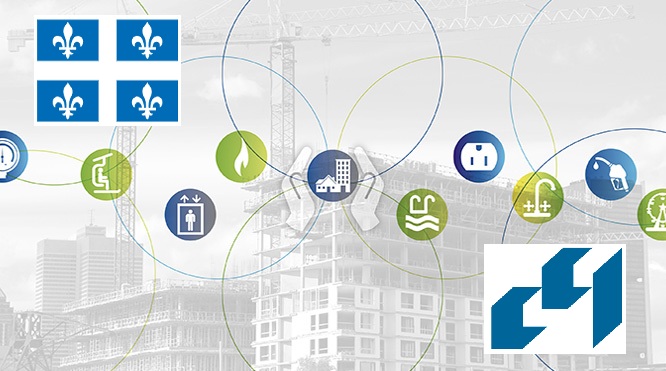The construction sector in Quebec is governed by several organizations that oversee the regulation and supervision of activities in the industry. Among them, the Commission de la construction du Québec (CCQ) and the Régie du bâtiment du Québec (RBQ) play distinct yet complementary roles. For those who wish to work in this field or understand how it operates, it is essential to know the difference between these two institutions!
CCQ – Commission de la construction du Québec
The primary role of the RBQ is to ensure public protection, and as such, it fulfills numerous responsibilities in the construction sector.
Management of the workforce and working conditions within the activity sectors covered by the organization.
The Commission de la construction du Québec (CCQ) is a public organization primarily responsible for managing the workforce in the construction industry. Its mandate includes ensuring the application of collective labor agreements, managing workers’ pension and benefit plans, and overseeing professional training and access to employment.
The four sectors covered by the CCQ are:
Residential, Industrial, Institutional and Commercial, Civil Engineering and Roadwork.
Working in one of the sectors covered by the CCQ requires workers to hold the competency cards related to the trade they perform. The residential sector (referred to as “used”) is not covered by the CCQ.
CCQ Sectors
Industrial Sector
The industrial sector includes the construction of buildings, including installations and equipment, whether physically attached to these buildings or not, primarily designated for carrying out economic activities related to the exploitation of mineral resources, raw material processing, and goods production.
Institutional and Commercial Sector
The institutional and commercial sector includes the construction of buildings, including installations and equipment, whether physically attached to these buildings or not, primarily designated for institutional or commercial purposes, as well as any construction that does not fall under the residential, industrial, or civil engineering and roadwork sectors.
Civil Engineering and Roadwork Sector
The civil engineering and roadwork sector includes the construction of structures of general interest for public or private use, including installations, equipment, and buildings, whether physically attached to these structures or not. This sector specifically covers the construction of roads, aqueducts, sewers, bridges, dams, power lines, and gas pipelines.
Residential Sector
The residential sector includes the construction of buildings, including installations and equipment, whether physically attached to these buildings or not, where more than 85% of the total area—excluding any parking space—is designated for housing. Additionally, the number of above-ground floors, excluding any basement sections and considering any side of the building or building complex, must not exceed six for new buildings or eight for other cases.
Heavy Residential Sector
The new construction of any building in the residential sector with more than four above-ground floors, as seen from at least one façade and excluding any parking space, also includes the modification, renovation, maintenance, and repair of existing buildings with more than six floors.
Light Residential Sector
The construction of any building in the residential sector that does not fall under heavy residential construction.
Main Roles of the CCQ
- Management of Collective Agreements: The CCQ ensures the application of various agreements between employers and construction workers.
- Administration of Pension and Benefit Funds: It manages retirement plans, insurance, and indemnities for workers.
- Training and Qualification: It oversees worker training and issues competency certificates.
- Industry Access Control: It ensures that only qualified individuals can work on construction sites.
- Monitoring Working Conditions: The CCQ ensures that workers receive the wages stipulated in collective agreements and benefit from decent working conditions.
- Sanctions and Fines: The CCQ has the authority to issue fines to workers and employers who fail to comply with regulations, particularly those working without a valid competency card on construction sites.
In other words, the CCQ plays a crucial role in ensuring that the rights of construction workers are respected and that employers comply with labor standards. The organization is a key player in regulating the sector to maintain a balance between employers and employees.
The RBQ – La Régie du bâtiment du Québec
The Régie du bâtiment du Québec (RBQ) is responsible for the regulation and oversight of construction contractors. It ensures the quality of structures, public safety, and the enforcement of construction standards.
Regulation and Safety of Structures
The RBQ ensures that contractors and companies comply with strict standards to guarantee the quality and durability of built infrastructures in Quebec.
Main Roles of the RBQ
- Issuance of Contractor Licenses: Any company or self-employed worker wishing to carry out construction work must obtain a license from the RBQ.
- Inspection and Enforcement of Standards: The RBQ ensures that construction work complies with current regulations, such as the Quebec Construction Code.
- Public Protection: It establishes rules to ensure the safety of buildings and installations (gas, electricity, elevators, etc.).
- Management of Residential Guarantees: The GCR supervises warranty plans for new homes to protect buyers.
- Verification of Contractor Competencies: To obtain a license, a contractor must demonstrate their technical and administrative knowledge and skills.
- Handling Complaints and Sanctions: The RBQ can intervene in case of complaints regarding construction quality or non-compliance with standards and impose sanctions if necessary.
Key Differences Between the CCQ and RBQ
| Criteria | CCQ | RBQ |
| Main Mandate | Workforce management and enforcement of collective agreements | Regulation of contractors and inspection of structures |
| Target Audience | Construction workers and employers | Contractors and building owners |
| Training and Certification | Yes, management of competency certificates | No, but verification of qualifications for licenses |
| Contractor License | Not required | Mandatory to operate as a contractor |
| Enforcement of Standards | No, only labor regulation | Yes, ensuring compliance with construction codes |
| Public Protection | No | Yes, by monitoring construction quality |
| Management of Social Benefits | Yes | No |
Conclusion
The CCQ and the RBQ are two essential organizations that ensure the proper functioning and regulation of the construction sector in Quebec. The CCQ primarily manages workforce and working conditions, while the RBQ oversees the safety and compliance of construction work.
The RBQ ensures that you carry out only the work permitted under the license you hold. The CCQ ensures that you possess the correct competency card for the work performed in the sectors it governs.
If you are a construction worker, the CCQ is your reference for certifications and working conditions. If you are a contractor, the RBQ is essential for obtaining your license and complying with current regulations. Understanding their respective roles helps workers, contractors, and citizens navigate the industry and adhere to the applicable regulations.
In such a highly regulated sector, these two institutions play complementary roles, maintaining a balance between construction quality and worker protection. Whether you are a laborer, a contractor, or a consumer, you benefit from the actions of these two organizations every day.


